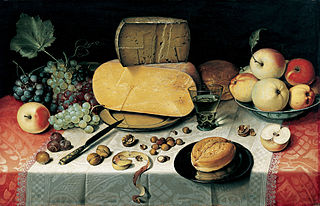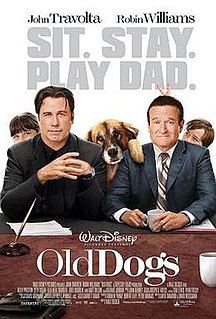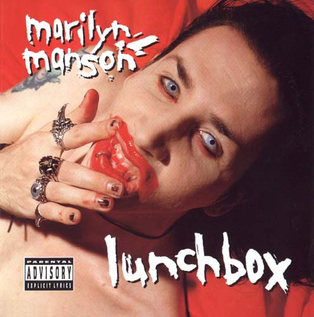
Bento is a single-portion take-out or home-packed meal common in Japanese cuisine. A traditional bento holds rice or noodles, fish or meat, with pickled and cooked vegetables, in a box. Containers range from mass-produced disposables to hand-crafted lacquerware. Bento are readily available in many places throughout Japan, including convenience stores, bento shops , railway stations, and department stores. However, Japanese homemakers often spend time and energy on a carefully prepared lunch box for their spouse, child, or themselves.
Richard Kern is an American underground filmmaker, writer and photographer. He first came to prominence as part of the cultural explosion in the East Village of New York City in the 1980s, with erotic and experimental films like The Right Side of My Brain and Fingered, which featured personalities of the time such as Lydia Lunch, David Wojnarowicz, Sonic Youth, Kembra Pfahler, Karen Finley and Henry Rollins. Like many of the musicians around him, Kern had a deep interest in the aesthetics of extreme sex, violence and perversion and was involved in the Cinema of Transgression movement, a term coined by Nick Zedd.

The dabbawalas constitute a lunchbox delivery and return system that delivers hot lunches from homes and restaurants to people at work in India, especially in Mumbai. The lunchboxes are picked up in the late morning, delivered predominantly using bicycles and railway trains, and returned empty in the afternoon. They are also used by meal suppliers in Mumbai, who pay them to ferry lunchboxes with ready-cooked meals from central kitchens to customers and back. The 2013 Bollywood film The Lunchbox is based on the dabbawala service.

Tiffin is an Indian English word for a type of meal. It can refer to the midday luncheon or, in some regions of the Indian subcontinent, a between meal snack, or in South Indian usage, a light breakfast. When used in place of the word "lunch", it does not necessarily mean a light meal.

The Magnolia Electric Co. is the seventh regular and final album by Songs: Ohia. It was recorded by Steve Albini at Electrical Audio in Chicago and released by Secretly Canadian on March 4, 2003. It received critical acclaim according to Metacritic. Delusions of Adequacy called it "a watershed album, an artistic breakthrough, and the first album to fully realize Molina's potential." Allmusic was more reticent in its wording, claiming that "Magnolia Electric Co. may not be the best Songs: Ohia album, but it is certainly the most approachable. It has a big, open feel certain to appeal to any classic rock fan, but retains the warm intimacy of previous albums."

A tin box is a tinplate container. Tinplate metal is primarily steel with a very thin tin coating. Tin-free steel is also used. In some cultures, these boxes or cans are referred to as "tin boxes" or sometimes even "tins". Many “tin boxes” have hinged or removable lids or covers. Some people collect tin boxes as a hobby.

A tavern sandwich is a sandwich consisting of ground beef on a bun, mixed with sauteed onions, and sometimes topped with pickles, ketchup, mustard, and cheese.

A packed lunch is a lunch prepared at home and carried to be eaten elsewhere, such as school, a workplace, or at an outing. The food is usually wrapped in plastic, aluminum foil, or paper and can be carried ("packed") in a lunchbox, paper bag, or plastic bag. While packed lunches are usually taken from home by the people who are going to eat them, in Mumbai, India, tiffin boxes are most often picked up from the home and brought to workplaces later in the day by so-called dabbawallas. It is also possible to buy packed lunches from stores in several countries. Lunchboxes made out of metal, plastic or vinyl are now popular with today's youth. Lunch boxes provide a way to take heavier lunches in a sturdier box or bag. It is also environmentally friendly.

Old Dogs is a 2009 American ensemble comedy film directed by Wild Hogs's Walt Becker and starring John Travolta and Robin Williams with an ensemble supporting cast played by Kelly Preston, Matt Dillon, Justin Long, Seth Green, Rita Wilson, Dax Shepard, Lori Loughlin, and Bernie Mac. It was released in theaters on November 25, 2009 and was released on DVD March 9, 2010.

Tiffin carriers or dabbas are a kind of lunch box used widely in Asia for tiffin meals. From South Asia they spread to India, Indonesia, Malaysia, and Singapore, where they are now widely used. They are also used extensively in Hungary, primarily to transport restaurant meals for consumption at home. The Hungarian version typically contains soup, a main course, and piece of cake. A very similar device is called Henkelmann in Germany. It is usually round or oval similar to military mess kits. The Henkelmann was very popular until the 1960s, but is very rarely used by Germans today.
Avis Richards is an American producer, director and philanthropist. In 2005, she founded the Birds Nest Foundation. Based in New York City, the 501(c)(3) organization works to provide other non-profit charities media content at little to no cost. In addition, Richards has produced and directed hundreds of episodes and films including Lunch: The Film, Lunch NYC and Dylan’s Lunchbox.

The Lunchbox is a 2013 Indian epistolary romantic film written and directed by Ritesh Batra, and produced by Guneet Monga, Anurag Kashyap, and Arun Rangachari. The film was jointly produced by various studios including DAR motion pictures, UTV Motion Pictures, Dharma Productions, Sikhya Entertainment, NFDC (India), ROH Films (Germany), ASAP Films (France), and the Cine Mosaic. It stars Irrfan Khan, Nimrat Kaur and Nawazuddin Siddiqui in lead roles. The film was screened at International Critics' Week at the 2013 Cannes Film Festival, and later won the Critics Week Viewers Choice Award also known as Grand Rail d'Or. It was shown at the 2013 Toronto International Film Festival. The film was released in India on 20 September 2013.

Nimrat Kaur is an Indian actress. She began her career as a print model and went on to act in theater. After brief appearances in a few films, Kaur starred in Anurag Kashyap's production Peddlers, which was screened at the 2012 Cannes Film Festival. She followed it with her breakthrough role in The Lunchbox, a critically acclaimed drama co-starring Irrfan Khan, which was screened at the 2013 Cannes Film Festival.

The Wu Tao Chishang Lunch Box Cultural History Museum is a museum about lunch boxes in Chishang Township, Taitung County, Taiwan. The museum also serves as a restaurant.

Dosirak (도시락) in South Korea or kwakpap (곽밥) in North Korea refers to a packed meal. It usually consists of bap and several banchan. The lunch boxes, also called dosirak or dosirak-tong, are typically plastic or thermo-steel containers with or without compartments or tiers. Dosirak is often home-made, but is also sold in train stations and convenience stores.














